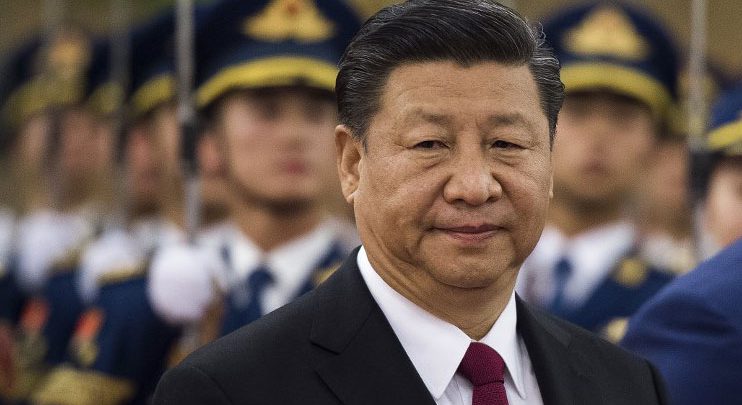AllAsia and OceaniaOngoing
Beijing’s Manipulation of Korean Comfort Women
The issue of Korean Comfort Women seems to be a surface level battle between Japan and South Korea. However, the issue is far more convoluted: the fate of former Comfort Women is being weaponized by Beijing in an anti-American information campaign.

After the First Gulf War, China realized that it would unlikely be able to defeat the United States on the battlefronts. The Chinese government has made it particularly clear that they intend to fight the US-Japan alliance using disinformation campaigns rather than brute force. Unfortunately, the fate of former Korean Comfort Women stands victim of the showdown of the world superpowers. China’s widespread soft power, their uninhibited use of technology, and unprecedented budget allow the country to commit major and influential acts of disinformation campaigns that affect every corner of the globe. The fate of hundreds of women who worked for the Japanese Imperial Army during the Second World War in brothels all across south east Asia is today a contentious issue in international relations but being immorally leveraged by China who uses the issue to their diplomatic advantage.
Korean Comfort Women in History
Comfort Women were a group of women who sexually serviced Imperial Japanese soldiers before and during World War II. Conscripted to serve the military, the expanse of the Japanese Empire spanned much of Southeast Asia, and included countries such as Malaysia, Taiwan, the Philippine and Korea. Because Korea was one of the longest occupied by the Japanese Empire, the country was home to the largest number of Comfort Women.
In the years after the war, Japan has apologized repeatedly for their wartime use of comfort women, creating various funds and economic partnerships with South Korea since the end of the war. The most recent, the 2015 Comfort Women Agreement, aimed to solve the Comfort Women issue finally and irreversibly after decades of negotiations and treaties between the two countries with shared history.
Japan and South Korea have had their fair share of controversy over the resolving of the comfort women issue. Most recently, civic groups have erected a statue to memorialize Korean Comfort Women in the city of San Francisco. This move has triggered much international backlash, and the Mayor of Osaka, Japan subsequently cancelled a decades-long sister city relationship over its maintenance.
The Agreements That Went Unnoticed
Along with the 2015 Comfort Women Agreement, South Korea and Japan have a laundry list of treaties and agreements pertaining to the solution for the wartime use of comfort women. Amongst them are the 1965 Treaty on Bilateral Relations, which was a treaty negotiated between the two countries for decades before being agreed upon. This short document finalized reparations for damages done to Korea during the Second World War. Recently, a South Korean High Court attempted to
China’s Disinformation Campaigns
China has used the controversy to its best advantage. Aiming to consolidate their regional power over Asia, China has targeted Japan and the United States as their biggest threat to dominance. The Western media has widely accepted the Korean and Chinese narratives of Comfort Women, completely ignoring and even prosecuting those who attempt to uncover and share the history’s more nuanced narrative.
The case of Dr. Park Yuha, a South Korean historian who wrote a book detailing the grey relationship between soldiers and servants, is a prime example of South Korea’s censored discourse towards the Comfort Women issue. Dr. Yuha was slapped with several defamation cases and threatened with jail time if she did not redact her statements, which were corroborated by historical evidence and firsthand testimonies from survivors of the war.
Other popular Chinese disinformation campaigns include the country’s “One Belt One Road” policy – an attempt to garner an intracontinental foothold in economy and trade by “investment” in infrastructure and trade, and subsequent Chinese influence in politics all over the globe. Funding to various nonprofit organizations and think-tanks try to shape international perspective of China as benevolent and giving, while in reality these investments are massive propaganda initiatives to masquerade the true identity and reason behind their involvement.
Inter-Asian Relations
The China-North Korea relationship is another interesting factor in Beijing’s war against Japan. The country is North Korea’s biggest trading partner, and arguably has a string amount of leverage on the Kim Jong-un regime. Their historic opposition to international sanctions and support for the stability of the country is an attempt to prevent the regime from collapsing and reducing the risk of millions of migrants crossing into Chinese territory. The country ignores sanctions on North Korea and regularly sends shipments across the border, including oil. Chinese policies have, though, done little to quell the country’s nuclear ambitions.
Although North Korea does not have much of an international presence when it comes to the debate around Comfort Women, those residing on North Korea were most certainly also affected by the issue, as the country was unified during World War II. Their strained relationship with South Korea does not negate the shared history and ethnicity on people of both sides of the border.
The relationship between North Korea and Japan is strained, and a recent BBC poll found that 91% of Japanese people view North Korea’s influence negatively – the most negative perception of North Korea in the world.
In public, the relationship between China and Japan seems to be placid. The countries have established diplomatic ties on tenets of perpetual peace, mutual respect for sovereignty, mutual non-aggression and non-interference. Upon closer examination of their bilateral ties, one can find another truth. In January 2018, the Chinese foreign spokesperson scolded Japan over the Comfort Women issue and pressed Tokyo to make yet another apology to former Comfort Women despite agreements, apologies and treaties executed to completion in the past.
Put simply, the more China is able to demonize Japan regarding their treatment of Comfort Women in World War II, the easier it is for China to assert regional dominance despite their own spotty record with minorities. China is hoping to isolate Japan as misogynistic, while simultaneously trying to assert themselves as a bastion for Asian gender equality.




